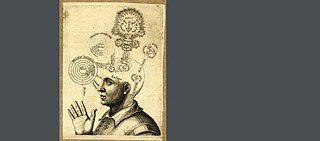Theoriekurs
On Decadence

From stories of Roman emperors drowning their dinner guests in roses to the reveries of Baudelaire’s Flowers of Evil, tropes of decadence—decay, decline, decomposition—have flourished in modern times. Decadence has played a vital role in narratives of culture, history, and political economy. On the one hand, decadence can indicate a sense of historical or cultural loss in the face of swift-moving technological progress. On the other, it can signal a fidelity to the artificial or the constructed over the seemingly natural. Often, decadence expresses a florid stylistic tendency that reflects perceptions of a civilization in decline. Confusingly, decadence encompasses both the ideas of outdated morals and deviations from increasingly urgent moral norms. It can illuminate a decaying world order (say, capitalism; bourgeois culture), or a utopian renunciation of failing forms of social life. How do narratives of decadence function in phenomena ranging from climate change to the rhetoric of electoral politics to the fabric of ordinary life? Why has decadence become so central to modern culture and politics?
In this course, we will study modern decadence in literature, visual art, and theory, concentrating on 19th- and 20th-century France, Germany, and England. We will ask: what has decadence meant historically and what does it mean now? What are the uses—ethically, politically, poetically, and otherwise—of narratives of decadence? How should we understand decadence as a stylistic tendency and what are its relationships to romanticism, modernism, and the avant-garde? What does it mean to claim decadence or, by contrast, to designate a person, place, thing, age, or phenomenon as “decadent”? What are the material conditions that give rise to myths of decadence? And what kinds of counter-narratives do these myths suggest? The syllabus for this course will draw on the work of Adorno, Baudelaire, Benjamin, Lenin, Luxemburg, Huysmans, Marx, Nietzsche, Poe, Showalter, Wilde, and Yeats.
Instructor: Rebecca Ariel Porte
Rebecca Ariel Porte holds a PhD in English Language and Literature from the University of Michigan, Ann Arbor. Her research, which centers on 19th- and 20th-century movements in British and American poetry, concentrates on crossings between early analytic philosophy and modern theories of poetics and aesthetics.
Details
Goethe-Institut New York
30 Irving Place
New York, NY 10003
Sprache: Englisch
Preis: $315
info@thebrooklyninstitute.com
Diese Veranstaltung ist Teil der Veranstaltungsreihe Brooklyn Institute for Social Research.